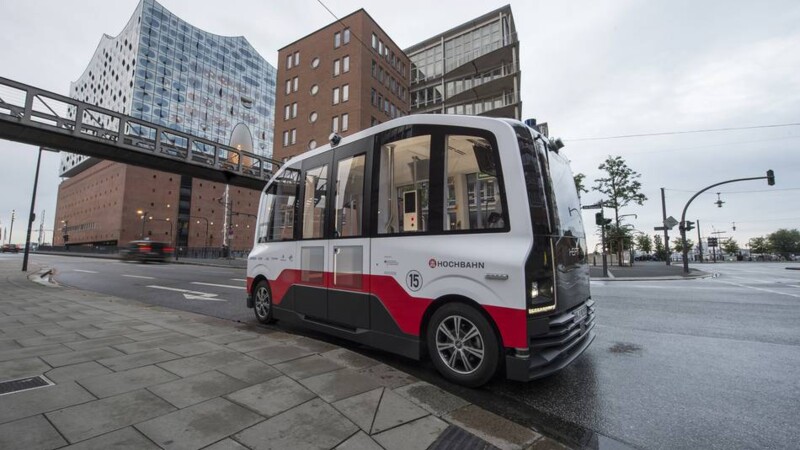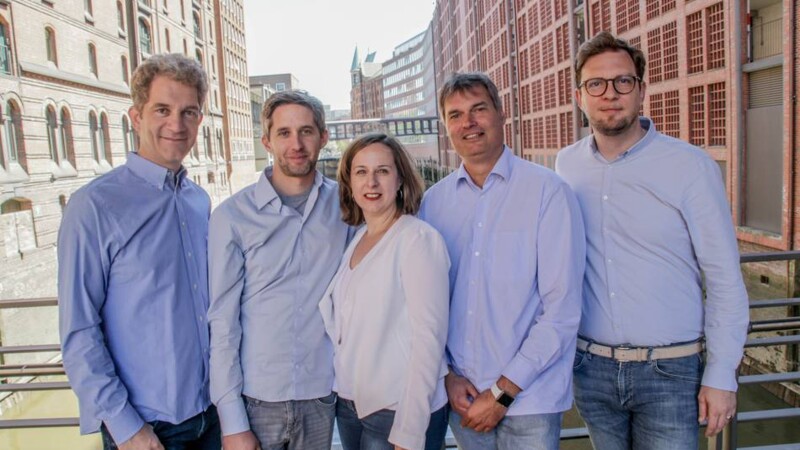E-mobility is generally considered one of the most pressing topics of the future. Jungheinrich, one of the world’s leading intralogistics companies has been driving the issue for decades and has sold its own electric forklifts since the 1950s. Today, 95 per cent of trucks sold by Jungheinrich are electric and emission-free. The increasing use of lithium-ion technology has led to an imminent revolution in mobile work equipment, Michael von Forstner, Manager of Jungheinrich’s Lithium-Ion division, promised.
Hamburg News: Mr. von Forstner, electric mobility based on lead-acid batteries is already widespread in European warehouses. Why should your customers switch to new, far more expensive lithium-ion batteries…?
Michael von Forstner:..because the lithium-ion technology, which we develop for intralogistics, is powerful. Energy density and energy efficiency is one of the key issues of our time. Compared to a traditional lead-acid battery, a lithium-ion battery is two-thirds smaller, completely maintenance-free, can be charged swiftly and has a three times longer service life. That means that the costs pay for themselves very quickly. But we’re not just talking about a new battery; we’re talking about a real revolution that will lead to a completely new generation of industrial trucks – also and precisely because of the reduction in battery size.
Hamburg News: Is the size of the battery so important?
Michael von Forstner: Absolutely. So far we have had to design our forklifts, i.e. the space for the driver and forks, around the huge batteries. When changing a lead-acid battery, a second forklift truck was needed because a weight of over a ton was at stake and the customer had to decide between the expensive battery change and a charging time of at least six to eight hours.
Hamburg News: And what do the new forklifts look like?
Michael von Forstner: They are much smaller and more compact. This makes them more agile and easier to manoeuvre through narrower aisles. And narrower aisles mean more storage space and that’s means cash. We can also make the driver’s workstations much larger, more comfortable and more ergonomic. That’s important in view of changing demographics. Forklift drivers are in great demand today.
Hamburg News: Jungheinrich is known mainly as a forklift manufacturer. Its entry into battery development came as a real surprise for both the sector and the battery industry.
Michael von Forstner: That’s right. Although we bought lead-acid batteries, we are developing the new technology entirely by ourselves. We purchase only the cells. Lithium-ion batteries are complex systems in which, in addition to the actual battery cells, a sophisticated electronic system, the battery management system ensures safe and reliable operation. The continuous communication between the individual components is essential here.
Hamburg News: Intelligent batteries?
Michael von Forstner: An intelligent system. We offer the complete networking of vehicle, lithium-ion battery and charger from a single source. The customer can digitally measure the energy consumption and efficiency of individual vehicles or the entire fleet and thus control the charging of the batteries to avoid waiting times and network peaks and to ensure optimum availability of the devices.
Hamburg News: How long does recharging take?
Michael von Forstner: That depends entirely on the system, which we can tailor to the individual customer’s needs. By the way, our customers were instrumental in adapting the technology. The required size of the battery and chargers resulted from the vehicle’s intensity of use. Quick chargers allow for a charging process from zero to 100 per cent in just over an hour. But the batteries do not always have to be charged fully depending on the application; 50 per cent or even less is enough and so they can be recharged during every break.
Hamburg News: How is the new technology being accepted?
Michael von Forstner: We developed the concept in 2007-2008 and were able to present the first fully functional model of an industrial truck with a lithium-ion battery. That was still viewed with certain amount of scepticism, but we were not misled by it. In 2011, we presented a model that was ready for series production. Of the 120,000 industrial trucks that we sold in 2017, 6,000 were equipped with lithium-ion batteries. We are talking about a rapid development here: in 2015 there were “only” 500 vehicles. In the following year, there were 1,600, and this year we are expecting a sales volume of 12,000 vehicles, i.e. double compared to last year.
Hamburg News: Will we see Jungheinrich’s technology in cars on Hamburg’s streets soon?
Michael von Forstner: We are concentrating on our market, i.e. mainly on the use of forklifts in warehouses and factories. Our lithium-ion drives have been designed for the tough operating conditions in multi-shift applications. Nevertheless, the triumph of lithium-ion batteries is unstoppable.
ys/pb
Interview by Yvonne Scheller
Sources and further information
Michael von Forstner
Michael von Forstner, 49, is a true Jungheinrich native. After studying mechanical engineering at the TU Hamburg-Harburg, he joined the Hamburg intralogistics group as a trainee. Meanwhile, he can look back on a career spanning 23 years of experience in various positions ranging from technology to sales. He has been managing the company’s lithium-ion technology division since 2017.
Jungheinrich AG
Founded in 1953, Jungheinrich AG is one of the world’s leading suppliers of intralogistics solutions. Its portfolio includes material handling equipment, logistics systems, services and lithium-ion batteries. Headquartered in Hamburg, the group is represented worldwide in 40 countries by its own direct sales companies and by partner companies in over 80 other countries. The listed intralogistics group employs more than 17,000 people worldwide and earned consolidated sales of EUR 3.4 billion in 2017.
More
Similar articles

HEAT ends first test phase successfully
